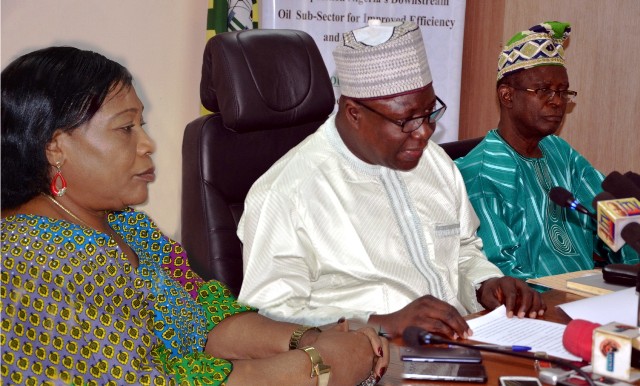Business
Reps Decry N60m Grass Cutting Proposal

The House of Representatives yesterday decried N60 million provided by the Presidential Committee on North-East Initiative (PCNI) in the 2017 Budget for weeding in communities ravaged by insurgency.
The amount is for contracts to “cut shrubs, grasses and trees” along Maiduguri-Bama road.
The house’s Committee on Internally Displaced Persons picked out the figure when the PCNI appeared before it to defend its N45 billion budget for humanitarian assistance, rehabilitation and resettlement of displaced villagers.
Chairman of the committee, Rep. Sani Zoro and other members expressed displeasure over the provision.
“You cannot travel this same way, awarding contracts on grasses again; it is not acceptable. Why can’t you assign this duty to the military to do it for you?
“They can use their personnel to clear the grasses and you can drop this idea of awarding contracts with N60 million.
“Your duty, from what we understand, is to provide succour for the displaced persons.
“These people are traumatised and they need urgent basic amenities as they return home. Rehabilitation has to do with their survival as human beings first,’’ Zoro said.
He challenged the PCNI to furnish the committee with its mandate, saying “You have N184 million for screening programme for humanitarian activities, what does that mean?
“There is N150 million on advocacy and early warning system and N165 million for conflict management.
“You are going to deliver security equipment for N200 million. What type of security equipment? Then another N2.5 billion for security outfits.
“Are you telling us that part of your role is to fund the operations of the military in the North-East? The military has its own budget already.
“Why are you not talking about food, shelter, medical care and schools for these IDPs?’’
A member of the committee, Rep. Adamu Kamale (PDP-Adamawa) said that the N45 billion budgeted for the North-East was inadequate, but decried the provision of N8.4 billion out of the money for military operations.
Kamale argued that there was no justification for the proposal for the military in the budget.
“PCNI is not a military agency. This N8.4 billion should be converted to rehabilitation of burnt houses and schools.
“I am an IDP, so I know where it pains. N5 billion out of the money can rehabilitate up to 50 per cent of the houses.
“Again, you are just duplicating so many things in this budget. Our people back home will not forgive us if we pass this budget like this,” he said.
Another member, Rep. Istifanus-Dung Gyang (PDP-Plateau) informed the committee that the Federal Government’s total commitment to the North-East in 2017 was “over N800 billion.”
Gyang explained that the money was domiciled in the various Ministries, Departments and Agencies of government for the purpose of developing the region.
“So, your role as PCNI is recovery. You come in after the military have completed their own role and they have their budget”, he said.
However, the Vice-Chairman of the PCNI, Mr Tijjani Tumsah, explained that the budget was planned after due consultation with the military.
He said that rehabilitation was the key responsibility of the PCNI as it could not be achieved if security aspect was left out.
Tumsah said that the government would not take the risk of returning the IDPs to their villages without adequate security cover.
“The IDPs are in camps in locations where they are safe; so, returning them home means that there is security for them.
“Security remains a major issue in rehabilitation. There are mines everywhere. The military will have to go in there to remove them”, he added.
Transport
Automated Points Concession : FAAN Workers Gave 72hrs To Revise Decisions In PH

Transport
FAAN Announces Pick-Up Points for Go-Cashless Cards

Business
Fidelity Bank To Empower Women With Sustainable Entrepreneurship Skills, HAP2.0
-

 Politics3 days ago
Politics3 days agoSenate Urges Tinubu To Sack CAC Boss
-

 News3 days ago
News3 days agoAmend Constitution To Accommodate State Police, Tinubu Tells Senators
-

 News3 days ago
News3 days agoDisu Takes Over As New IGP …Declares Total War On Corruption, Impunity
-
Business3 days ago
President Tinubu Extends Raw Shea Nuts Export Ban To 2027
-
Business3 days ago
Crisis Response: EU-project Delivers New Vet. Clinic To Katsina Govt.
-
Business3 days ago
President Tinubu Approves Extension Ban On Raw Shea Nut Export
-
Sports3 days ago
NDG: Rivers Coach Appeal To NDDC In Talent Discovery
-
Rivers3 days ago
Etche Clan Urges Govt On Chieftaincy Recognition

